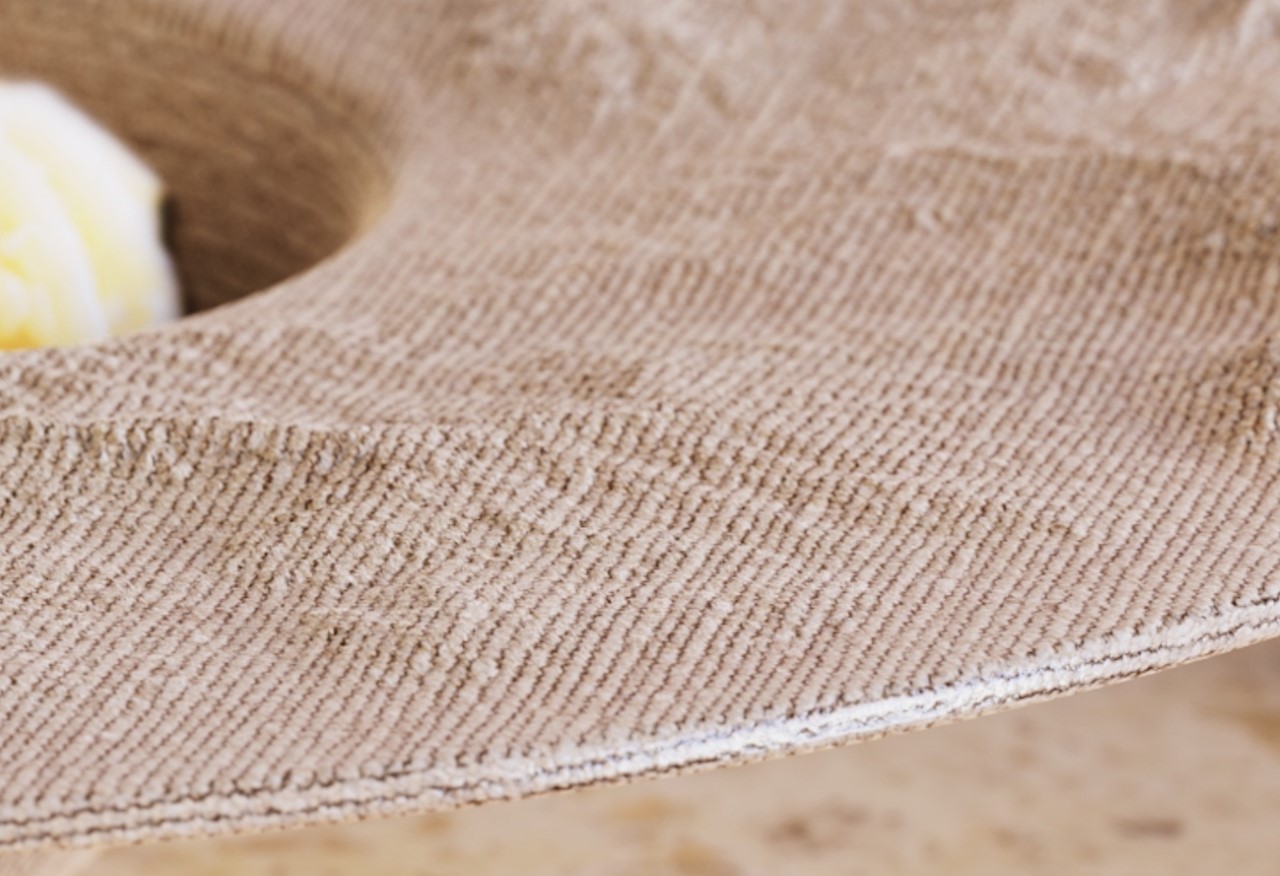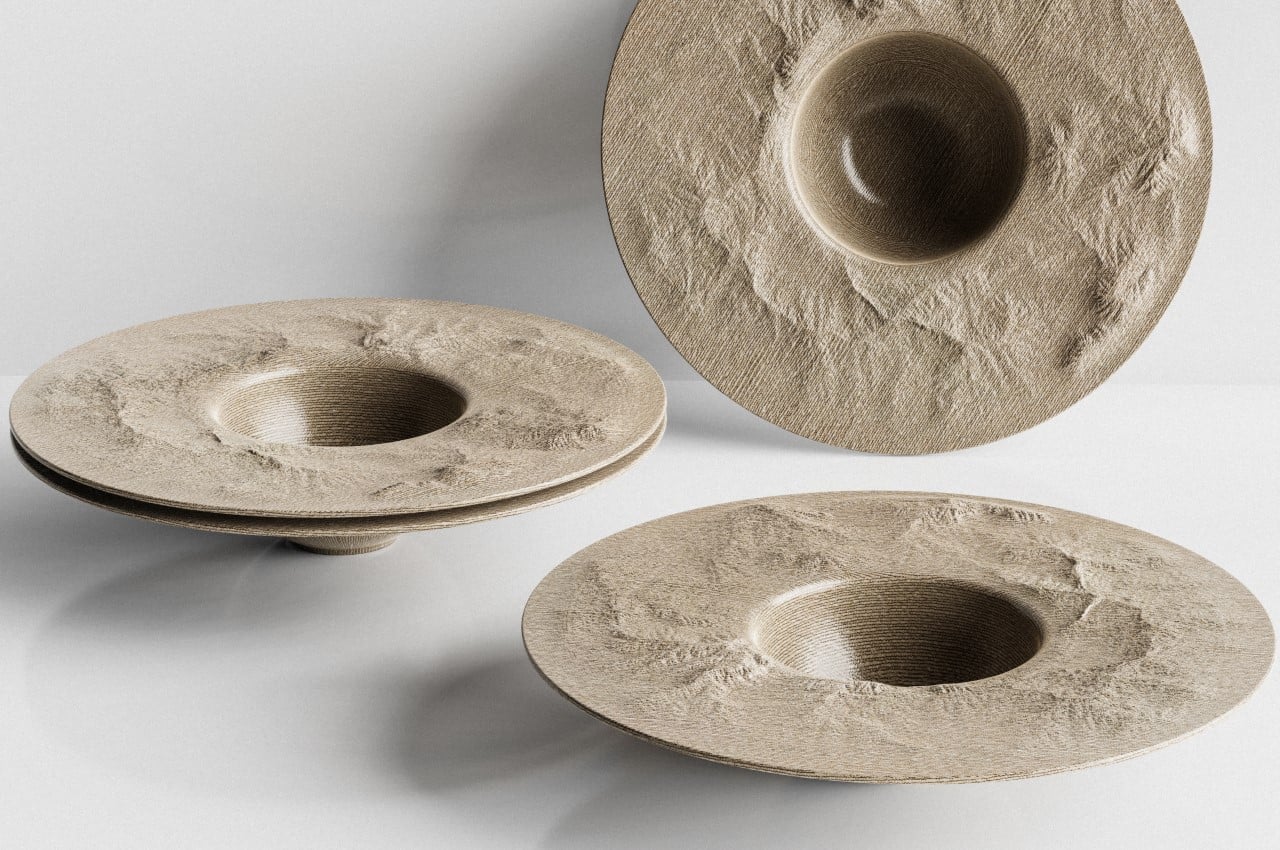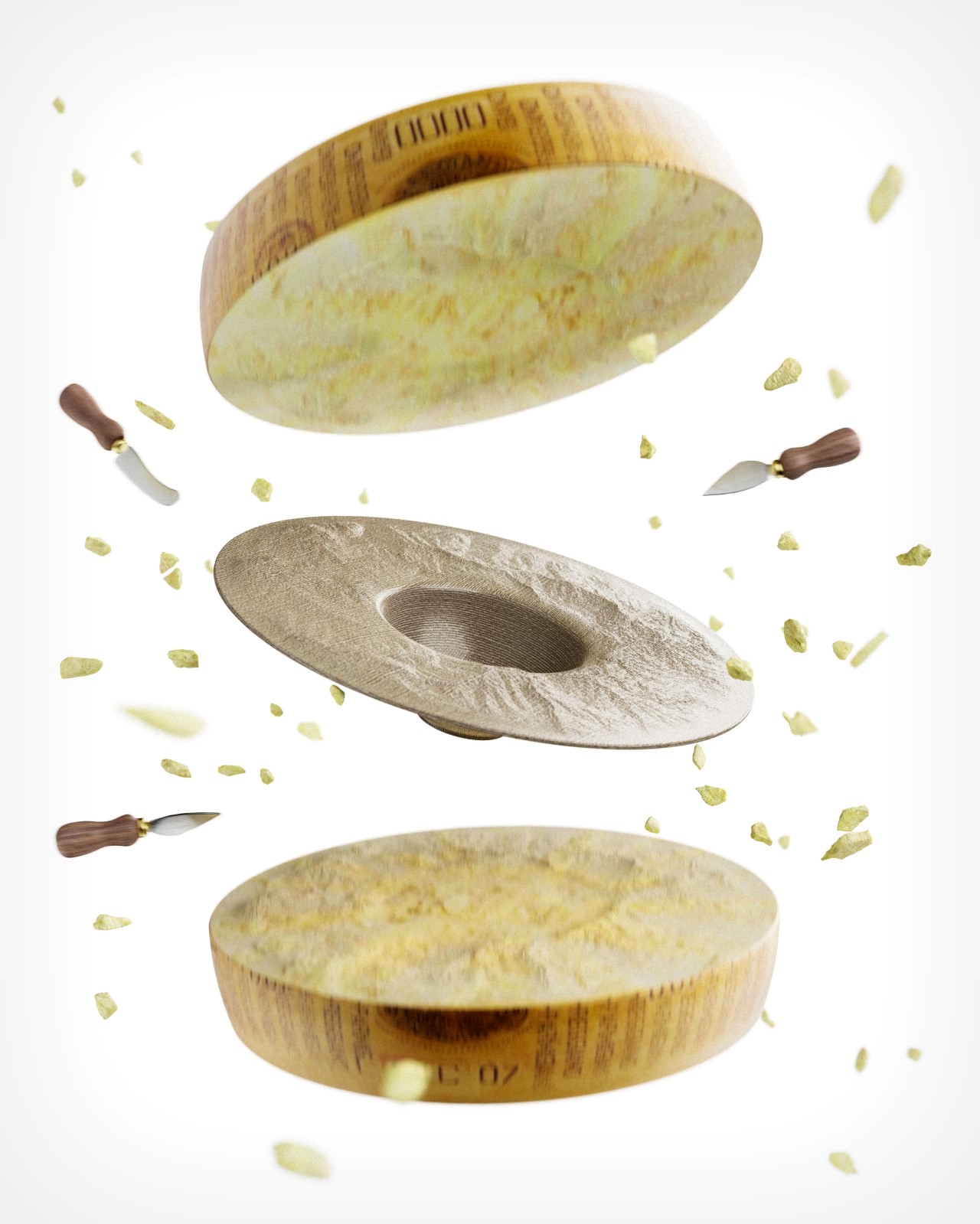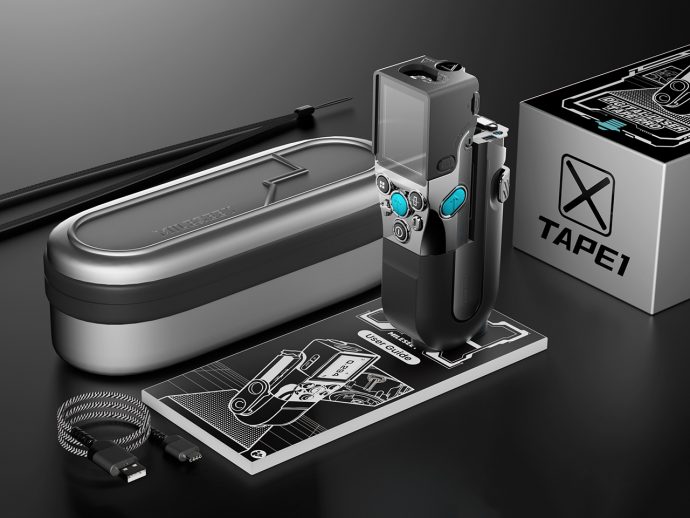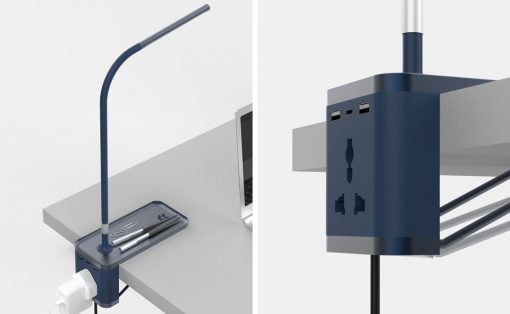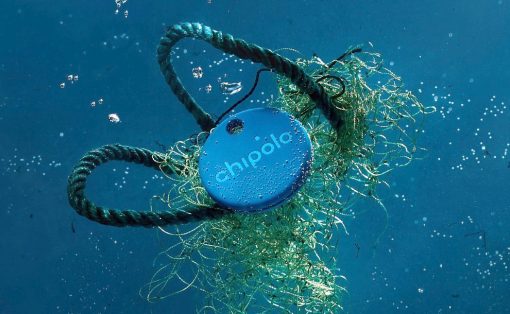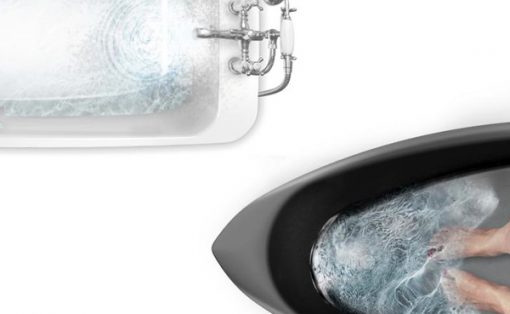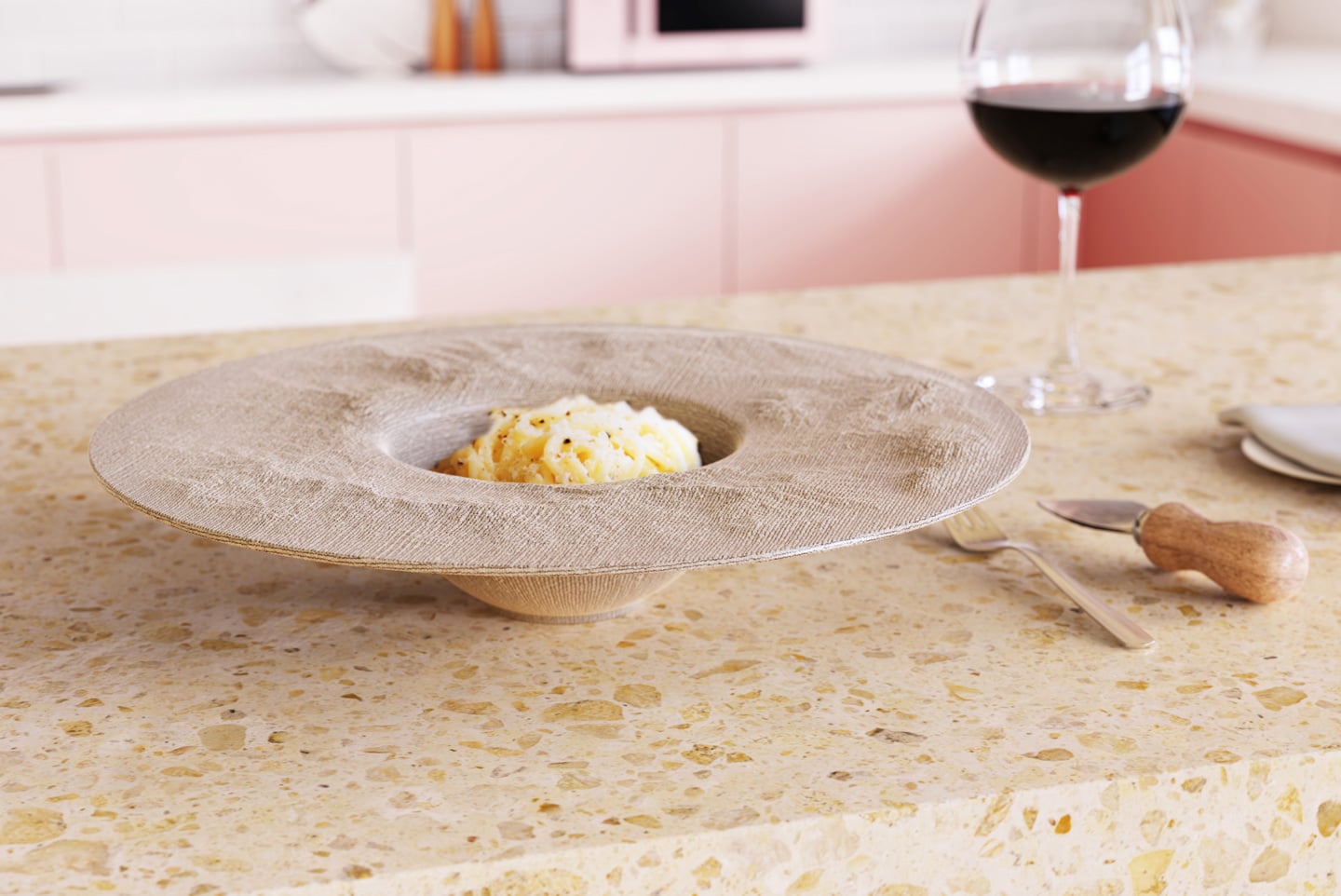
Designed as an entry for this year’s 2022 Parmigiano Reggiano Design Challenge, Tomás Neumann’s pasta bowl sits at the very intersection of food and design. The bowl looks instantly familiar to the keen eye with its texture, color, and unique uneven surface. Rendered in KeyShot, Neumann cleverly managed to make the rim of his pasta bowl look like the cracked mountainlike surface of a Parmigiano Reggiano cheese wheel when it’s cracked open for the first time. Coincidentally enough, the uneven texture also pays tribute to the Apennine Mountains in the Reggio Emilia region, from where we get Parmigiano Reggiano cheese even to this very day!
The Parmigiano Reggiano Design Challenge is now in its second year, looking for products that elevate the human experience, inspired by the culinary works of world-renowned chefs. Launched in partnership with iconic Italian brands Kartell and Alessi, Parmigiano Reggiano Consortium is issuing its annual design challenge to creatives, inviting them to “imagine Masterpieces for the Table inspired by food.”
Designer: Tomás Neumann
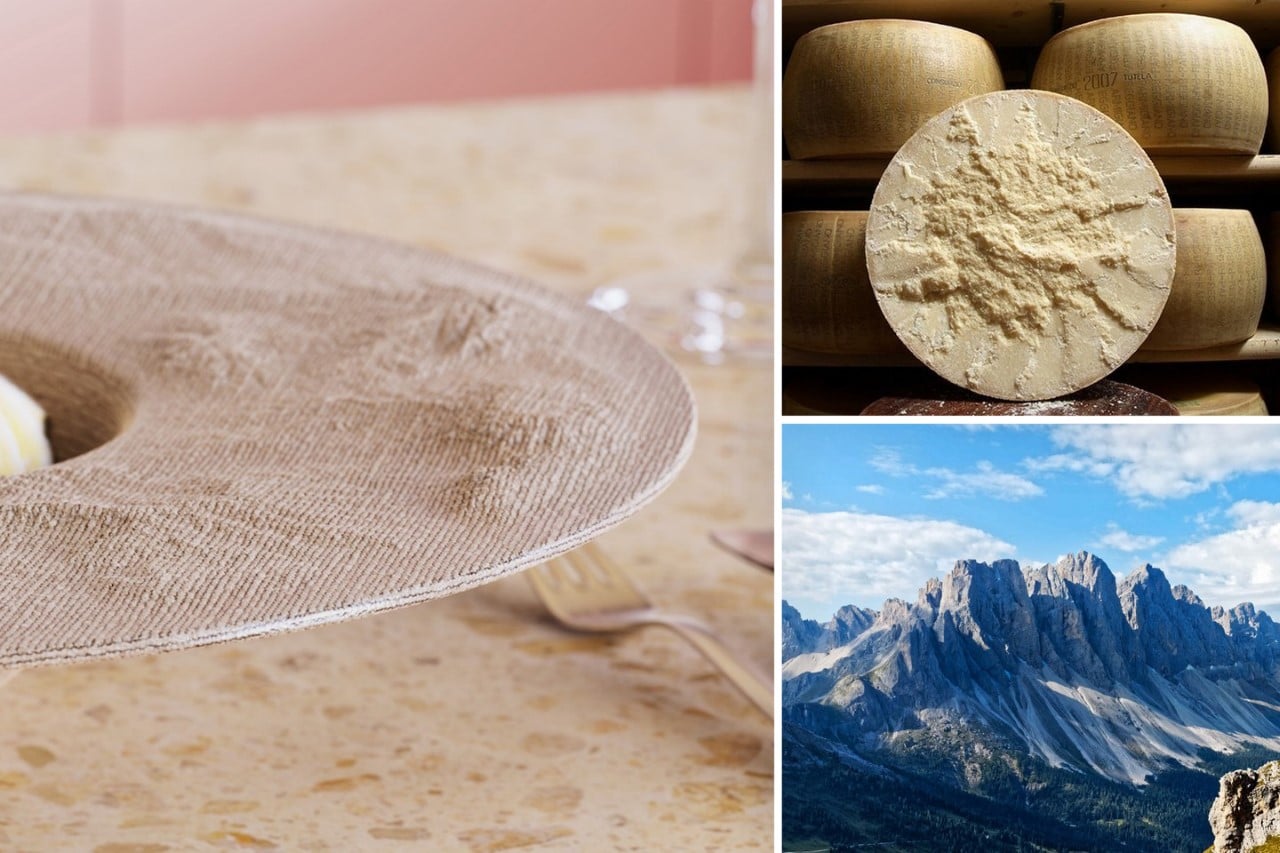
Neumann’s entry pays the perfect tribute to the iconic Pasta Cacio e Pepe. Given the dish’s deeply intertwined history with the Parmigiano Reggiano cheese, this made it a perfect pick! Neumann’s pasta bowl, titled “Appennino Interiore” (or Apennine Within) highlights and celebrates the mountainous texture that’s formed when a wheel of Parmigiano Reggiano is broken into. The hard cheese’s crystalline surface ruptures unevenly, creating a miniature Apennine-like surface that’s packed with the cheese’s signature aged flavor. That flavor is accentuated not just through the pasta, but through the dish it’s presented in. The Appennino Interiore is designed with an iconic textured rim, while also boasting of a grain-like pattern that’s a hat-tip to the texture found on the rind of the cheese wheel, left behind by the fabric it’s tied up in. The Appennino Interiore is also designed to be sustainably made. Neumann mentions that the bowl is, in fact, made from a “food-grade biodegradable resin/Linen composite that utilizes discarded linen cheesecloth from the cheese production, adding this to a list of already recycled and upcycled by-products of Parmigiano Reggiano production.”
